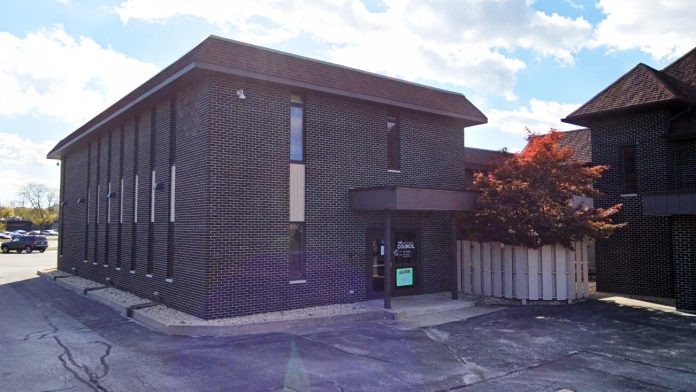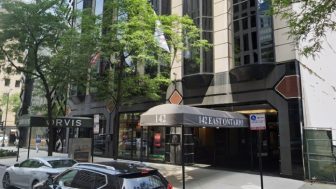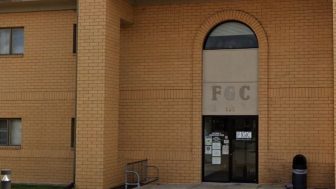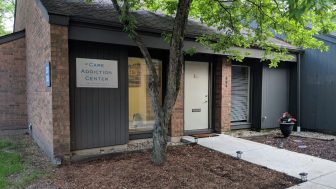The South Suburban Council on Alcoholism and Substance Abuse
1909 Cheker Square East
Hazel Crest, IL 60429
Hazel Crest, Illinois
708-647-3333
Get Help Now - 312-248-2519
 Who Answers?
Who Answers?

Addiction Treatment Programs
Adult Program
Alcoholism
Cognitive Behavioral Therapy (CBT)
Men's Rehab
Opioid Treatment
Women's Rehab
Teen & Adolescent Program
Adult Program
Individuals who are struggling with addiction to drugs or alcohol can get support at an adult program in Illinois. Designed for men and women over the age of 18, these programs offer rehabilitation treatment and recovery services.Alcoholism
Each alcohol rehab in Illinois is unique, but most include three basic aspects of treatment: medical detox, psychotherapy, and medication. Through these methods, participants receive treatment for the physical, mental, and emotional aspects of alcohol use disorder.Cognitive Behavioral Therapy (CBT)
In Illinois, cognitive behavioral therapy is an effective method for addiction treatment. It teaches effective communication skills, provides tools to help people improve mood, and empowers participants to dismiss insecurities that can lead to substance abuse.Men's Rehab
Men’s rehab in Illinois typically includes individual, group, and family therapies. Group sessions are conducted with men only, which encourages greater vulnerability and sharing opportunities among participants.Opioid Treatment
Learn the skills you need to break free from opioid dependence at opioid rehab in Illinois. Program options include detox, inpatient rehab, outpatient rehab, counseling, and medication assisted treatment programs, which are tailored to meet the needs of the individual.Women's Rehab
Women who have substance use disorders are more likely than men to have co-occurring mental health disorders. Women’s rehab in Illinois often provides treatment for dual diagnosis, so women can get help for their addiction and disorders such as anxiety or depression.Teen & Adolescent Program
Some of the most common services offered in a young adult program in Illinois include individual and group counseling, medication management, educational courses, and 12-step programs. These programs are tailored to address the challenges of this stage of life.Levels of Care
1
Detox & MAT
The first step toward a drug-free future is typically detox. This initial phase of drug rehab in Illinois can ...last up to a week. During this time, addictive substances are slowly and safely cleansed from your body.Read More
2
Inpatient Rehab
Inpatient rehab in Illinois features intensive clinical supervision and a highly structured and supportive env...ironment, meaning this level of care is especially well suited for clients just beginning their recovery journey and those at risk of relapse.Read More
3
Outpatient Rehab
Outpatient rehab in Illinois may be brief or long-term, depending on the individual. During this time, you wil...l maintain membership in a support group as well as attend one-on-one counseling sessions. The focus is ongoing development of life skills that will prevent relapse.Read More
4
Aftercare & Alumni Program
Aftercare rehab in Illinois lowers the chance of relapse. This program offers support to help you face challen...ges after you successfully complete rehab. By providing guidance, accountability, and assistance with basic life skills, aftercare gives you confidence to navigate temptations and maintain sobriety.Read More
5
Dual Diagnosis & Mental Health
An Illinois dual diagnosis program treats both your mental health and recovery needs. Psychiatrists and addict...ion specialists work together to address co-occurring disorders, such as depression, anxiety, or ADHD.Read More
6
Drug & Alcohol Intervention
In many cases, drug rehab in Illinois begins with intervention. Professional intervention services are availab...le to help you facilitate an intervention, develop a treatment plan, and choose the program that best suits your loved one’s needs.Read More
7
Sober Living
Sober living in Illinois offers an environment where you can focus on your recovery journey. You’ll live in ...a drug-free residence, where you’ll contribute to household bills and chores, attend 12-step meetings, and submit to random drug testing. This structured environment can be helpful to maintain sobriety during the first few months of recovery.Read More
Accreditations

Joint Commission
Insurance
 Financial Aid
Financial Aid
If you need help to pay for alcohol and drug rehab in Illinois, there are a number of financial aid programs a...vailable. In order to qualify for aid, you must fill out an application and check on the status of your application often. Competition can be stiff for these forms of financial assistance.Read More
 Payment Plans & Financing
Payment Plans & Financing
For those who are underinsured or uninsured, paying the total cost of a rehab program up front is not feasible.... Fortunately, many alcohol and drug rehabs make financing available to potential clients through private loans, in-house payment plans, or partner lenders. You can choose a finance package that lets you start treatment immediately and pay for it later.Read More
 Medicaid Accepted
Medicaid Accepted
Medicaid will cover at least some, if not all, of the associated costs for detox and alcohol or drug rehab in ...Illinois. Since Medicaid is not accepted by every treatment provider, be sure to speak with your insurance provider to confirm your benefits and the coverage details before entering a treatment program.Read More
 Private Insurance
Private Insurance
For those who have priviate insurance coverage, the cost of alcohol and drug rehab in Illinois can be greatly ...reduced or completely eliminated. But keep in mind, coverage rates vary by specific plan, so be sure to confirm your plan details with your provider.Read More
 Self-Pay Options
Self-Pay Options
Self-pay options, also known as private pay, are common when paying for drug rehab in Illinois. As the name su...ggests, you are paying for treatment out-of-pocket. Examples of private pay include paying in cash, writing a check, taking out a personal or medical loan, credit card payments, and more.Read More
 Sliding Scale Payment
Sliding Scale Payment
Many alcohol and drug rehabs in Illinois offer sliding scale payment plans for clients who cannot otherwise af...ford to pay for treatment. You'll need to fill out an application and, upon acceptance, the rehab will work with you to develop a payment plan based on your income.Read More
Contact The South Suburban Council on Alcoholism and Substance Abuse




